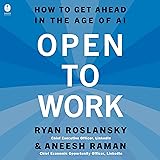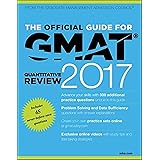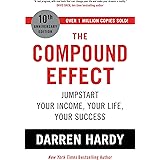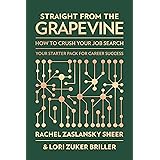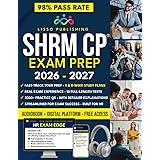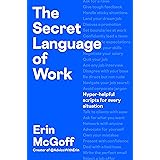Navigating the crucial decision of choosing the right career after Class 12 can feel overwhelming, can’t it? Many students grapple with uncertainty, the weight of societal expectations, and peer pressure, making this pivotal moment even more challenging. As the world evolves at an unprecedented pace, with new industries emerging and traditional roles transforming daily, simply picking a path isn’t enough. Proactive planning is now essential not just for securing a job, but for cultivating clarity, confidence, and purpose in your academic and personal growth. The video above provides eight essential tips to guide you through this process, and here, we dive deeper into each one, offering expanded insights and practical strategies to help you lay a strong foundation for your future.
1. Cultivate Self-Awareness: Understanding Your Core Strengths and Passions
The journey to choosing the right career after Class 12 begins with an honest look inward. Understanding your unique strengths, genuine interests, and core values is paramount, acting as your compass in a sea of options. Without this foundational self-knowledge, you risk making choices based on external influences rather than authentic personal alignment, which often leads to dissatisfaction later on. Engaging in diverse activities like hobbies, volunteer work, or workshops can reveal hidden talents and areas of genuine enjoyment, providing tangible evidence of what truly resonates with you. For instance, a student who volunteers at an animal shelter might discover a passion for veterinary science or animal welfare, while another who excels in a school debate club could be naturally drawn to law or communications. Data consistently shows that individuals whose careers align with their personal values and interests report significantly higher job satisfaction and lower burnout rates, with some studies indicating upwards of a 20% increase in overall well-being. This deep dive into self-awareness empowers you to make decisions rooted in your innate abilities and desires, rather than succumbing to fleeting trends or the expectations of others.
Practical Steps for Self-Assessment:
- **Personality Assessments:** Tools like the Myers-Briggs Type Indicator (MBTI) or Holland Codes (RIASEC) can offer insights into your preferences and compatible career types. These assessments, while not definitive, can provide a valuable starting point for introspection.
- **Journaling & Reflection:** Regularly jot down what tasks you enjoy, what challenges excite you, and what kind of impact you wish to make in the world. Reflect on past successes and failures to identify recurring themes in your strengths and areas for growth.
- **Seeking Feedback:** Ask trusted friends, family, or teachers for their observations on your strengths and natural inclinations. Their external perspective can highlight traits you might overlook in yourself.
2. Explore Diverse Career Options: Beyond the Traditional Paths
Early career planning affords you the invaluable opportunity to explore a vast landscape of career paths, far beyond the conventional choices. While established fields like medicine, engineering, and commerce remain viable, the modern economy is burgeoning with exciting opportunities in emerging sectors. Consider the rapid growth in areas such as Artificial Intelligence (AI) and Machine Learning, which are transforming industries from healthcare to finance, or the dynamic world of Digital Marketing and Content Creation, crucial for businesses in the digital age. Data Analytics is another field in high demand, leveraging insights from vast datasets to drive strategic decisions. Moreover, the Renewable Energy sector is expanding globally, offering roles in engineering, project management, and policy development, reflecting a societal shift towards sustainability. Attending career fairs provides a fantastic opportunity to speak directly with professionals in various fields, gaining first-hand insights into daily responsibilities and required skill sets. Internships, even short-term ones, offer practical experience, allowing you to test the waters in a particular industry before committing to a long-term educational path. Expanding your horizons beyond familiar options is key to finding a truly fulfilling career after Class 12.
Emerging Fields to Consider:
- **Artificial Intelligence & Machine Learning:** Roles like AI Engineer, Data Scientist, Machine Learning Specialist.
- **Digital Marketing & Content Creation:** Positions such as SEO Specialist, Social Media Manager, Content Writer, Digital Campaign Strategist.
- **Data Analytics:** Data Analyst, Business Intelligence Analyst, Statistician.
- **Renewable Energy:** Solar Panel Engineer, Wind Turbine Technician, Sustainability Consultant, Environmental Scientist.
- **Cybersecurity:** Cybersecurity Analyst, Ethical Hacker, Information Security Officer.
3. Set Clear, Achievable Goals: Your Roadmap to Success
Transforming your broad career aspirations into concrete, manageable goals is a critical step in effective career planning. Instead of merely dreaming of becoming an engineer or a designer, break down these large ambitions into smaller, actionable steps that provide a clear roadmap. For instance, if your ambition is to pursue engineering, your immediate goals might include selecting the right science subjects in Class 11 and 12, excelling in competitive exams, and actively participating in science or robotics competitions to build practical skills and demonstrate initiative. Similarly, if a creative field like writing or graphic design beckons, focusing on developing a strong portfolio, mastering design software, or joining writing workshops becomes paramount. Clear goals keep you focused and motivated, providing a tangible sense of progress and direction. Research indicates that individuals who set specific, measurable, achievable, relevant, and time-bound (SMART) goals are significantly more likely to achieve them, reporting a higher sense of accomplishment and sustained motivation throughout their journey.
4. Make Informed Education Choices: Strategic Academic Planning
Students who engage in early career planning are significantly better positioned to make strategic education choices that directly support their future aspirations. This foresight allows you to select the appropriate academic stream in Class 11, choose relevant elective subjects, and research college courses that align perfectly with your desired career path. For example, if you envision a career in computational biology, your early planning might lead you to choose a science stream with a strong emphasis on biology and computer science, and then seek out universities offering specialized bioinformatics programs. This proactive approach ensures that every academic decision is a purposeful step towards your ultimate goal, rather than a haphazard choice. Numerous studies suggest that students who carefully plan their educational trajectory report greater satisfaction with their studies and tend to perform better academically, likely due to a stronger sense of purpose and commitment to their chosen field. Such students are also more likely to secure admissions in their preferred institutions and courses, maximizing their potential for success.
5. Prioritize Skill Development: Preparing for Professional Challenges
Early career planning offers ample time to focus on developing a comprehensive skill set, encompassing both crucial soft skills and essential technical proficiencies. Soft skills, such as effective communication, teamwork, problem-solving, and adaptability, are universally valued across all industries and are often cited by employers as critical for professional success. The ability to collaborate effectively in a team, articulate ideas clearly, or navigate complex social dynamics can distinguish you in any workplace. Simultaneously, developing technical skills relevant to your chosen field, whether it’s coding, data analysis, graphic design software, or specific scientific methodologies, is non-negotiable in today’s competitive landscape. Slowly and steadily honing these skills prepares you for future professional challenges, boosting your confidence and making you a more attractive candidate to potential employers. For example, a student interested in digital marketing can begin by learning basic SEO principles or social media analytics tools long before college, giving them a significant advantage. Data from LinkedIn’s 2023 Workplace Learning Report indicates that 93% of companies believe soft skills are just as important as technical skills, emphasizing the holistic development required for modern careers.
Key Skills to Develop:
- **Soft Skills:** Communication, Collaboration, Critical Thinking, Adaptability, Leadership, Time Management, Problem-Solving.
- **Technical Skills:** (Varies by field) Coding (Python, Java), Data Analysis (Excel, SQL), Design Software (Adobe Creative Suite), Digital Marketing Tools (Google Analytics, SEMrush), Foreign Languages.
6. Enhance Decision-Making Abilities: Cultivating Critical Thinking
The process of exploring various career options naturally strengthens your critical thinking skills and improves your overall decision-making prowess. As you research different paths, you learn to analyze the pros and cons of each, weigh potential outcomes, and evaluate information from multiple sources. This systematic approach to problem-solving extends far beyond career choices, becoming a vital life skill. The ability to make well-thought-out decisions, based on careful consideration rather than impulse or external pressure, is invaluable in all aspects of life, from personal finance to relationships. Students who engage in this evaluative process develop a greater sense of autonomy and self-reliance, which are crucial for navigating an unpredictable future. For example, comparing various university programs involves analyzing curriculum, faculty expertise, campus culture, and career services, all of which hone sophisticated decision-making skills that benefit you for decades to come.
7. Foster Financial Awareness: Planning for Educational Investments
Understanding the financial implications of higher education or specialized courses is a crucial, yet often overlooked, component of early career planning. Tuition fees, living expenses, course materials, and potential relocation costs can accumulate quickly, and being aware of these requirements empowers you to plan proactively. By starting early, you can create a realistic budget, actively research and apply for scholarships, explore educational loans, or consider more cost-effective educational pathways, such as vocational training or online courses that lead to industry-recognized certifications. This proactive financial awareness significantly reduces potential stress and anxiety related to funding your education, allowing you to focus more on your studies and less on financial burdens. For instance, identifying scholarship opportunities specifically for students pursuing careers in renewable energy or healthcare can dramatically lighten the financial load, making ambitious dreams more attainable. Studies consistently show that financial planning, even at an early age, significantly reduces stress levels and improves overall well-being, paving the way for a smoother educational journey.
8. Reduce Stress and Build Confidence: Charting a Clear Course
Perhaps one of the most significant benefits of early career planning after Class 12 is the remarkable reduction in uncertainty and anxiety it brings. When you have a clear roadmap and a well-thought-out plan, the daunting prospect of the future transforms into an exciting journey. This clarity allows you to focus your energy on productive steps rather than being paralyzed by indecision or fear. Armed with a sense of direction, you can approach challenges with increased confidence, knowing that each effort contributes to your larger goals. This proactive mindset, nurtured through careful planning, is a powerful predictor of long-term success, equipping you with the resilience and self-belief to overcome obstacles. A structured approach to your career after Class 12 minimizes the guesswork and maximizes your potential, allowing you to build a strong foundation for both professional accomplishment and personal happiness.
Chart Your Course: Post-12th Career Q&A
Why is understanding myself important when choosing a career?
Understanding your strengths, interests, and values acts like a compass, guiding you to choose a career that genuinely suits you and will make you happier.
Should I only look at well-known jobs like doctors or engineers after Class 12?
No, it’s good to explore many options beyond traditional paths. New fields like Artificial Intelligence, Digital Marketing, and Renewable Energy offer exciting opportunities.
What kind of skills should I work on for my future career?
You should develop both ‘soft skills’ like communication and problem-solving, and ‘technical skills’ specific to your chosen field, such as coding or design software.
How does planning my career early help reduce stress?
Having a clear career roadmap reduces uncertainty and anxiety, allowing you to focus your energy on productive steps and feel more confident about your future.


